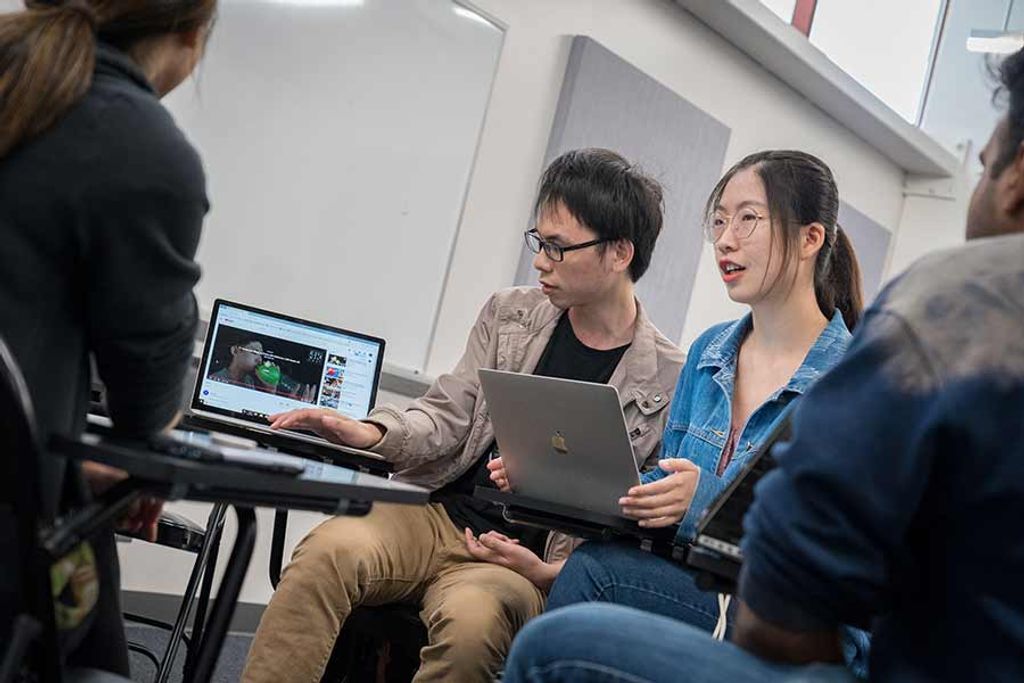In recent years, the rapid advancements in artificial intelligence (AI) have raised concerns about the potential impact on various industries, including engineering. Many wonder if engineers will eventually be replaced by AI systems. This article explores the role of AI in engineering and discusses its potential to enhance efficiency, challenges and limitations, as well as the future of engineering with AI. Here are the key takeaways:
Key Takeaways
- AI is transforming engineering processes by automating repetitive tasks and providing valuable insights.
- The integration of AI in engineering education can equip future engineers with the necessary skills to work alongside AI systems.
- Ethical considerations are crucial when implementing AI-driven engineering solutions.
- Collaboration between engineers and AI systems can lead to innovative and efficient solutions.
- While AI has the potential to enhance engineering efficiency, it is unlikely to replace human engineers entirely.
The Role of AI in Engineering
AI’s Impact on Engineering Processes
Artificial Intelligence (AI) has revolutionized engineering processes, enabling faster and more efficient problem-solving. Machine learning algorithms analyze vast amounts of data to identify patterns and make predictions, reducing the time and effort required for complex calculations. Additionally, AI-powered automation streamlines repetitive tasks, freeing up engineers to focus on more critical aspects of their work.
- AI enables faster and more efficient problem-solving
- Machine learning algorithms analyze data to identify patterns
- AI-powered automation streamlines repetitive tasks
Incorporating AI into engineering processes has the potential to significantly improve productivity and accuracy. However, it is important to note that AI is not a replacement for human engineers. While AI can assist in data analysis and automation, human expertise and creativity are still essential in decision-making and innovation.
Tip: Engineers should embrace AI as a tool to enhance their work, leveraging its capabilities to augment their skills and improve overall efficiency.
AI’s Potential to Enhance Engineering Efficiency
AI has the potential to greatly enhance engineering efficiency by automating repetitive tasks, optimizing processes, and providing valuable insights. By leveraging machine learning algorithms and advanced data analytics, engineers can streamline their workflows and focus on more complex and creative problem-solving. Artificial Intelligence in engineering can analyze large datasets and identify patterns, anomalies, and correlations that may not be immediately apparent to human engineers. This enables engineers to make data-driven decisions and improve the accuracy and efficiency of their designs and solutions.
Challenges and Limitations of AI in Engineering
While artificial intelligence (AI) has the potential to revolutionize the field of engineering, it also presents several challenges and limitations that need to be addressed. One of the main challenges is the lack of transparency and interpretability of AI algorithms. As AI systems become more complex and sophisticated, it becomes increasingly difficult to understand how they make decisions. This lack of transparency can be a barrier to adoption, as engineers may be hesitant to trust AI systems without a clear understanding of their inner workings.
The Future of Engineering with AI

The Integration of AI in Engineering Education
AI has made a significant impact on engineering education, revolutionizing the way students learn and acquire skills. With the integration of AI, students now have access to advanced learning tools and resources that enhance their understanding of complex engineering concepts. AI-powered simulations and virtual laboratories provide a hands-on learning experience, allowing students to practice and experiment in a safe and controlled environment. Additionally, AI algorithms can analyze vast amounts of data to identify patterns and trends, enabling personalized learning experiences tailored to each student’s needs and learning style.
Ethical Considerations in AI-Driven Engineering
Ethical considerations play a crucial role in the integration of AI in engineering. As AI systems become more advanced and autonomous, engineers must grapple with the potential ethical implications of their creations. Risk assessment is one key area where ethical considerations come into play. Engineers need to ensure that AI algorithms are designed to prioritize safety and minimize potential risks. This involves carefully evaluating the potential consequences of AI-driven decisions and implementing safeguards to mitigate any negative impacts. By incorporating ethical considerations into the development and deployment of AI in engineering, we can ensure that these technologies are used responsibly and ethically.
The Collaboration between Engineers and AI Systems
The collaboration between engineers and AI systems is a crucial aspect of the future of engineering. As AI continues to advance, engineers will need to work hand in hand with AI systems to leverage their capabilities and expertise. This collaboration will enable engineers to tackle complex problems more efficiently and effectively.
Conclusion
In conclusion, while AI has the potential to greatly impact the field of engineering, it is unlikely to completely replace engineers. AI can enhance engineering processes and improve efficiency, but it also has its limitations and challenges. The integration of AI in engineering education is crucial for preparing future engineers for a world where AI is prevalent. Ethical considerations must also be taken into account to ensure responsible and unbiased use of AI in engineering. Ultimately, the collaboration between engineers and AI systems will be key in driving innovation and solving complex problems. The future of engineering with AI is a partnership that combines human expertise with the power of AI technology.
Frequently Asked Questions
Will AI completely replace engineers in the future?
No, AI is not expected to completely replace engineers. While AI can automate certain tasks and improve efficiency, engineers will still be needed to design, innovate, and make critical decisions.
What are some examples of AI applications in engineering?
AI can be used in engineering for tasks such as predictive maintenance, optimization of designs, quality control, and data analysis.
How can AI enhance engineering efficiency?
AI can automate repetitive tasks, analyze large amounts of data quickly, assist in design optimization, and provide real-time insights for decision-making, thereby enhancing engineering efficiency.
What are the challenges and limitations of AI in engineering?
Some challenges include the need for high-quality and diverse training data, the potential for biased algorithms, the lack of interpretability in AI models, and the ethical considerations of AI-driven decision-making.
Will AI replace the need for engineering education?
No, AI will not replace the need for engineering education. While AI can assist in certain tasks, engineers still require a strong foundation in engineering principles, critical thinking, and problem-solving skills.
How can engineers collaborate with AI systems?
Engineers can collaborate with AI systems by leveraging AI tools and algorithms to augment their capabilities, using AI for data analysis and insights, and integrating AI into the engineering workflow.




